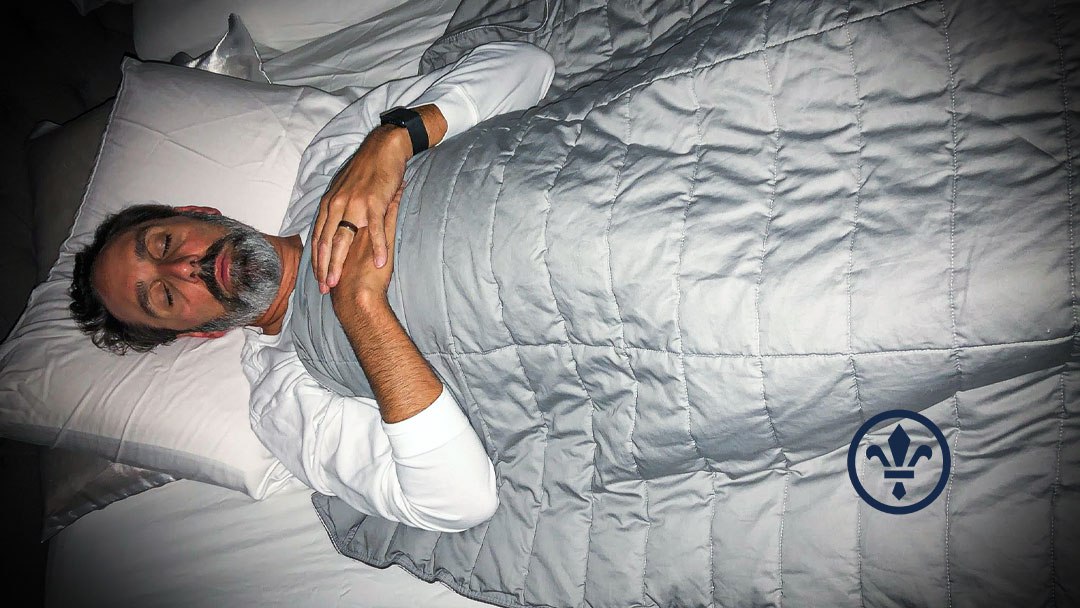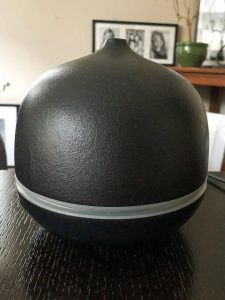
By Cezanne Youmazzo - Fitness Director
Why Is It So Hard to Fall Asleep?
I don’t know about you but the uncertainty of this past year with our world being shut down, Covid-19, our kids on zoom for school and the craziness of the news sleep just seems to escape me. Moreover, I am definitely at the beginning of menopause and hot flashes are a real thing. If you are like me struggling to fall asleep and many nights stay asleep try these tips below. The tips that work the best for me is to dim the lights, use essential oil and read my kindle, for my husband music meditation and when he is lucky, sex seems to put him right out.
12 tips for good sleep
1. Decide on a bedtime in advance and start planning for it 1–2 hours ahead.
(And consider setting it just a little bit earlier than you want.)
Just like you can't go from 0 to 100 in the morning, you can't instantly calm down from a busy day the moment your head hits the pillow. Create a transition period during which you tell your brain and body to start relaxing.
2. Limit your caffeine to the morning with no caffeinated drinks after 2 p.m.
This one is hard for me since I teach or play pickleball 4 nights a week. I usually need a cup of coffee or green tea around 3pm. I am trying to wean myself off it.
Caffeine is a stimulant that stays in your body for 8–10 hours after ingesting it. An afternoon coffee could still leave you tossing and turning at 10 p.m. Remember that caffeine sources include coffee, black and green tea, colas, energy drinks, yerba mate, and dark chocolate.
3. 1 to 2 hours before bed, take out a piece of paper and write down everything that is on your mind.
Whether we’re planning our next day, ruminating over stuff that happened earlier, or just thinking about nothing in particular, it’s easy to let the "brain hamsters" run in their wheel as we lie there staring at the ceiling.
So get the hyperactive, anxious little critters out of your brain and on to paper with a brain dump.
Keep a notebook next to your bed and write down everything that's in your head: To-dos, the meeting next Wednesday, remembering to pick up dog food, stuff you're worried about, why is everyone moving out of California, should I? Why are we here? What is our purpose?........
Write it all down.
Now it is the paper's problem. It will hold on to that stuff for you, so your brain doesn't have to.
Keeping the notebook nearby means that it's always ready for letting go of the thoughts invading your mind. Have a last-minute thought before you slip between the sheets? Write it down.
Now your brain is clear, calm, and ready to relax.

4. Turn off all electronic screens (TV, computer, etc.) an hour before bed.
While you may swear that cruising Facebook & Instagram or watching late-night reality TV are relaxing, electronic media are actually stimulating.
They rev up our brain and body even if we don't realize it.
Plus, the light from screens can mess up our circadian clocks.
My husband loves watching TV in bed, which is why he has a harder time falling asleep and staying asleep. I prefer to watch TV in the den and head up to bed when I am tired. To me bed is for sleeping. If I am feeling restless, I read for a little while before sleeping.
5. Make yourself some decaf tea, listen to soft music, and read something light.
Reading is my favorite thing to do before bed, if I really want to fall asleep fast, I read a self-help book, romances and mysteries tend to make me want to stay up. Drink decaffeinated herbal tea; I like sleepy time & chamomile tea. Listening to calming music is my husband’s favorite strategy.
Reading light fiction, not the news while sipping on hot herbal tea gets you out of your mind and into a story.
6. Turn off all phones and gadgets and put them in another room.
You do not want to hear text message or email alerts while you’re trying to sleep — they’re much too tempting to check. Or set your phone to do not disturb between 10 pm and 6 am.
Get an old-school alarm clock without a lit display.
7. Keep your bedroom a little cooler.
If you have ever experienced a sweaty, sheets-knotted night, you know how difficult — and uncomfortable — it can be to relax and sleep when it’s too warm (Darn Hot Flashes!!!!) I like to sleep with my window open when it is not hurricane wind weather here in Santa Clarita.
8. Try putting essential oils on your pillowcase, wrist, soles of your feet or palms to help you not only relax but alleviates insomnia by reducing anxiety and tackling depression. Add belly breathing to also reduce anxiety.
I personally use the brand doTERRA, I like the Lavender oil, chamomile oil, Ylang Ylang oil, I like the blend Balance which has spruce needle and leaf, ho wood, frankincense resin, blue tansy flower and blue chamomile flower. I also like the Breathe blend when I feel stuffed up due to allergies or a cold. I also like to do belly breathing in conjunction with the essential oils. put one hand on your chest and one on your stomach, inhale filling up your belly with air for the count of 4, then exhale deflating your belly for the count of 4. It regulates your breathing and signals to your body that you are “shutting down” for the evening.

9. Take an Epsom salts bath before bed.
Epsom salts contain magnesium, which calms the body and promotes sleep. This also helps overall recovery and will ease aches and pains. Dump 1–2 cups into your bath and soak.
Experiment with bath temperature. Some folks swear by warm water; others find that cooler water knocks them out better. See what works for you.
10. Dim the lights. Darken your bedroom.
Darkness tells our body that it's time for sleep.
Dim the lights an hour or two before bed — only as bright as they need to be to keep you from bumping into things. Lucky for us we have a sleep number bed which is has an under light that is dim for when you get out of bed to use the bathroom, which is also happening more as I get older.
And make your bedroom as dark and quiet as possible: Get good drapes or blinds, block out ambient light, and cover any light sources (e.g. electronic displays). I use black out blinds.
11. Try some white noise.
If you're bothered by outside noise, try leaving a fan or humidifier on in your bedroom.
This will create a "white noise" or steady hum that will drown or level out distracting sounds, such as your neighborhood critters making noises especially the cacophony of birds at 6 am. Or if you are bothered by noises, like your snoring spouse use noise dampening/canceling ear plugs.
12. Focus on your behaviors rather than the outcome.
Aim to be just a little bit better, for you.
Don't lie awake wondering and worrying about "doing it right".
Just do your sleep ritual faithfully, get your butt in bed, and know that you tried your best.
Develop your own sleep ritual.
You don’t have to try all these strategies tonight. Just pick one or two that you think might work for you. Think of it as your own personal sleep experiment, we are all different and different things work for different people.
Keep experimenting until you find the right sleep plan for you.
Jen Azevedo is a tennis professional, pickleball professional, personal trainer, group exercise instructor, and the general manager of the Paseo Club. She loves the community at the Paseo Club and that it is also a safe and fun place for her daughter. Jen’s favorite activities are joining her tribe for trail races or her partners for tennis matches. Occasionally Jen slows down to relax with a book — she reads over 100 a year!
Topics:

